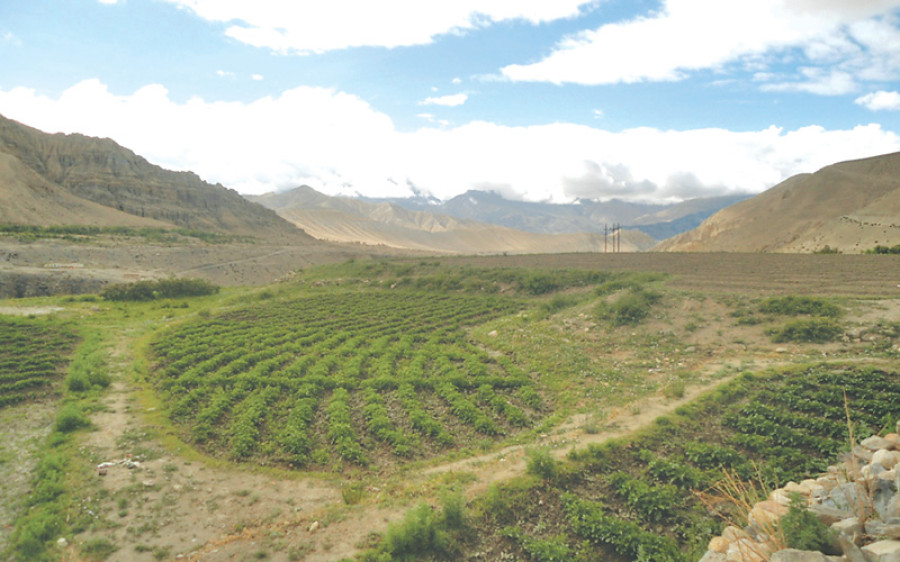Money
Locals gradually allow outsiders to settle in Mustang
The tightly knit community of Mustang, which once used to bar outsiders from settling in the district, is gradually opening up, as access to road network and growing number of educated youths have started working as agents of change.
Binod Tripathi
The tightly knit community of Mustang, which once used to bar outsiders from settling in the district, is gradually opening up, as access to road network and growing number of educated youths have started working as agents of change.
Until a decade earlier, residents of other districts were not encouraged to buy land and settle in Mustang, a scenic district in western Nepal, which lies along Annapurna Circuit, a world-famous trekking route, and is populated with people of Thakali, Gurung and Magar ethnic groups.
Although there was no law barring people of other districts from moving into Mustang, local groups, many have said, were so influential they would make transition of migrants trying to earn a livelihood in the district very difficult. This virtually barred outsiders from settling or running businesses in the district.
This trend continued for a long time in Mustang because of presence of age-old practice called “mukhiya”. Under this tradition, only kin of locals were allowed to buy land, settle and conduct business in the district.
“This meant without the permission of mukhiya (unofficial head of village) no one could buy land and live here. But now this practice is gradually phasing out,” Bir Bahadur Gurung of Muktinath said, adding, “People from Kathmandu and Lamjung have already started buying land in the district.”
Surya Mohan Dahal is one of the outsiders who has successfully migrated to Mustang. A resident of Pokhara, Dahal moved to the district around seven years ago and now is successfully operating his clothing business.
“Mukhiya tradition is now becoming less effective in the district, thanks to opening of the motor-road around 10 years ago, which has raised flow of people to Mustang,” Dahal said. “Because of this, people of other districts now face fewer problems in buying land in Mustang.”
Also, pressure exerted by the public administration has eased the process of buying land in the district, leading to hike in transfer of land ownership to outsiders.
“The practice of handing over ownership of land to residents of other districts is still rare, but we have seen locals inviting their friends to buy land in Mustang. So, outsiders have started buying land here,” said Mitra Lal Sharma, chief of Land Revenue Office of Mustang.
Another reason why Mustang is becoming more tolerant of outsiders is growing number of educated youths. These youths, according to locals, are turning Mustang into an inclusive society.
Yet there are those who still do not want to acknowledge that Mustang is closed to outsiders intending to settle in the district or conduct business.
“We have never barred people from other district to buy land in Mustang,” said Ganesh Thakali, central committee member of CPN Maoist Centre.
“It is only the question of whether outsiders, who migrate to Mustang, can survive once they arrive here.”




 9.7°C Kathmandu
9.7°C Kathmandu















